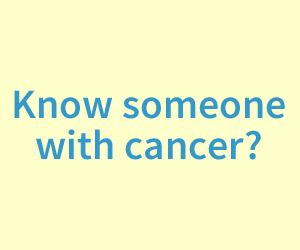Honey for oral mucositis
Honey is made by bees. Bees collect nectar, and carry it back to the hive. They regurgitate the nectar into the cells of the honeycomb. They beat their wings to dry the nectar and excrete saliva into it. Their saliva contains enzymes that alter the nectar. Ultimately, what results is honey which possesses antibacterial properties - meaning that bacteria cannot survive in it.
The question for cancer patients is: Does honey help against oral mucositis? I'll try to compile some relevant links to build a case for that.
- Honey making a medical comeback
"One patient who had an open wound that didn't heal for a few years "healed 90 percent in three weeks," she said, adding that the usual rate for chronic wounds is barely 10 percent a week".
- Could honey beat MRSA?
"All honey has some degree of antibacterial activity," Prof Molan explains. "In many honeys, the activity is due to hydrogen peroxide, a well-known antiseptic, which is made in the honey by an enzyme that the bees add. "However, in manuka honey I found an antibacterial activity that other honey doesn't have - something that comes from the plant's nectar, which is different."
- Wound care with antibacterial honey (Medihoney) in pediatric hematology-oncology
Medihoney has now been used in wound care at the Department of Pediatric Oncology, Children's Hospital, University of Bonn for 3 years. Supplemented with clinical data from pediatric oncology patients, this article reviews the scientific background and our promising experience with Medihoney in wound care issues at our institution. To collect and analyze the available experience, we prepare an internet-based data documentation module for pediatric wound care with Medihoney
- Another reallly interesting read by medihoney
This document explains how and why medihoney is treated to remove Clostridium botulinum spores. Also, make sure to check out the the amazing before and after pictures of a Thoracotomy wound (page 4, figure 2).
- An interesting Egyptian study that shows honey being effective against oral mucositis
In the treatment group, no patients developed grade four mucositis and only three patients (15 per cent) developed grade three mucositis. In the control group, 13 patients (65 per cent) developed grade three or four mucositis (p < 0.05). Candida colonisation was found in 15 per cent of the treatment group and 60 per cent of the control group, either during or after radiotherapy (p = 0.003). Positive cultures for aerobic pathogenic bacteria were observed in 15 per cent of the treatment group and 65 per cent of the control group, during or after radiotherapy (p = 0.007).Conclusion:This study shows that prophylactic use of pure natural honey was effective in reducing mucositis resulting from radiochemotherapy in patients with head and neck cancer.
Topical application of honey in the management of radiation mucositis. A Preliminary study
There was significant reduction in the symptomatic grade 3/4 mucositis among honey-treated patients compared to controls; i.e. 20% versus 75% (p 0.00058). The compliance of honey-treated group of patients was better than controls. Fifty-five percent of patients treated with topical honey showed no change or a positive gain in body weight compared to 25% in the control arm (p 0.053), the majority of whom lost weight. Click here for the full PDF.Role of Honey in the Management of Radiation Mucositis
In a randomized comparative study conducted at University Science Malaysia for the first time showed a significant reduction of severe (RTOG grade III-IV) radiation induced mocositis among head and neck cancer patient’s undergone fractionated radiotherapy.Topical application of royal jelly has a healing effect for 5-fluorouracil-induced experimental oral mucositis in hamsters
Honey (1%, 10% and 100%) and propolis (0.3%, 1% and 3%) ointments did not reduce the size of the mucositis in comparison to the vaseline-treated control group. However, the royal jelly (3%, 10% and 30%) ointments significantly improved the recovery from 5-fluorouracil-induced damage in a dose-dependent manner. These results suggest the possibility that the topical application of royal jelly has a healing effect on severe oral mucositis induced by chemotherapy.A forum thread where some folks discuss honey for wounds
"a friend gave me a jar of New Zealand Manuka Honey, I have used it for three days(putting it on the site with a cotton bud) and the hole has practically healed up! I had an appointment at the Peg Clinic yesterday and they reacted with some amusement when I said I was wasting their time (they had arranged for me to be 'glued up'). But, they had to accept the benefits of this honey when they saw the results. The doctor asked me to keep a diary and report back to them as they may well use the honey for other patients whose scars/peg sites refuse to heal"



